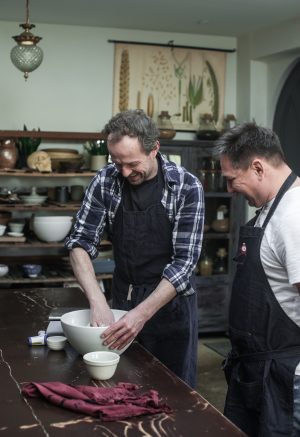Anyone can train in Pesonlisation of Bread, but here is an overview of the kind of students we have taught over the years:
- Doctors who use this approach to socially prescribe baking as Lifestyle Medicine to their patients, recognising the therapeutic and nutritional benefits of tailored bread-making.Nutritionists who apply personalised bread-making in their recommendations to clients, offering customised nutritional advice that includes bread tailored to specific dietary needs.
- Dieticians who have incorporated this method into dietary plans for patients, using the specific nutritional composition of bread to address health concerns and promote overall well-being.
- Both Artisan Bakers and Industrial Bakers develop recipes for their customers, focusing on crafting bread that meets the growing demand for health-oriented, personalised nutrition in both artisanal and industrial settings.
- School Cooks and Cafes integrate personalised bread into their menus to cater to the diverse nutritional needs and preferences of their students and customers..
- Psychiatrists and Occupational Health Specialists within the NHS have incorporated a baking initiative, recognising the mental and physical health benefits of bread-making and its role in patient care and rehabilitation.
- Parents, especially those with children who require additional nutritional support or have specific dietary needs, such as children with adhd and autism, utilise personalised bread-making to ensure their children’s diets are nutritious, optimal to support gut health, and enjoyable
- Carers, looking after someone with an autoimmune condition or cancer. Every bites counts when it comes to nourishment.
- Elderly Care Facilities staff who can use tailored bread-making to address the specific dietary requirements and preferences of older adults, improving their nutritional intake and quality of life.
- Community Health Workers and Social Workers can leverage personalised bread-making as part of community health initiatives, promoting accessible and affordable nutrition.
- Fitness Coaches and Personal Trainers might incorporate this knowledge to provide comprehensive wellness advice that includes nutritionally rich, personalised bread recipes to support physical health and recovery.
- Public Health Officials could advocate for the integration of personalised bread-making into public health nutrition strategies, aiming to address widespread nutritional deficiencies and improve population health outcomes.
- Culinary Schools and Cooking Classes could offer specialised courses on personalised bread-making, equipping future chefs and bakers with the skills to cater to the diverse nutritional needs of their clientele.
- People who work in hospices as end of life therapy for the families who are visiting their loved ones. Students have told me that often the smell of freshly baked bread is described as the most beautiful smell to enjoy in your last days, and the bread making is therapeutic and comforting when words fail.


